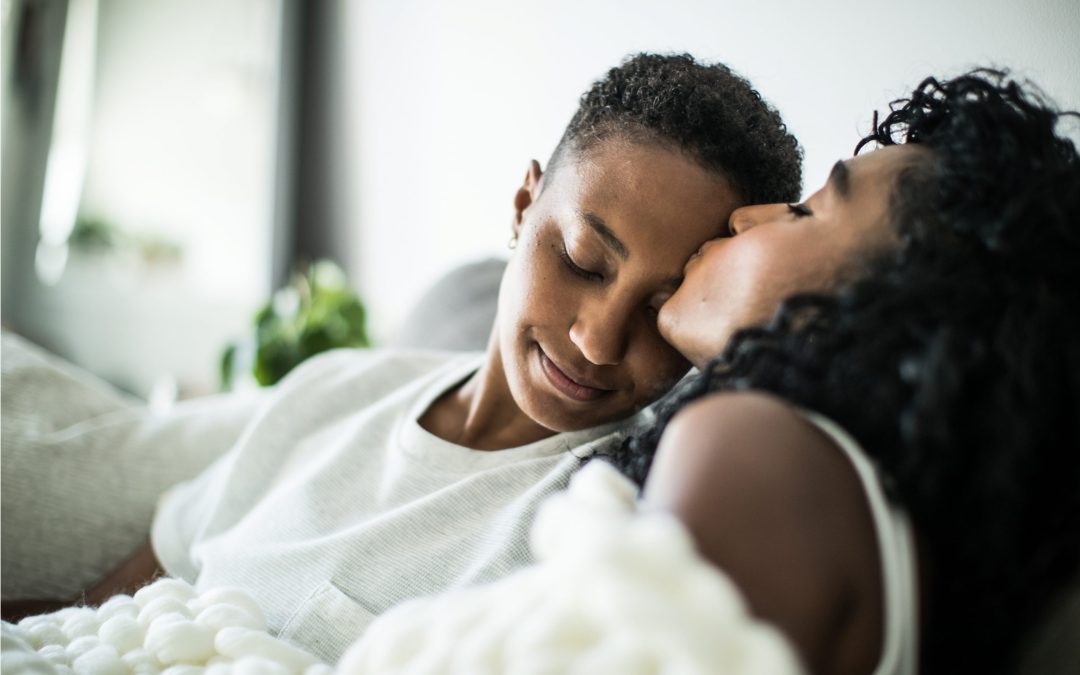How to feel good enough in your relationship
This month’s Enough Experiment expert, Michaela Thomas, clinical psychologist, couples therapist, podcaster, and author shows us how to feel good enough in our relationships

The Enough Experiment is a digital twelve-month column at Psychologies with coach Mandy Lehto. Start anytime.
Each month, we’ll focus on a particular theme and conduct an experiment to see if we can feel better about ourselves in that aspect of our lives. Small changes add up – and I’m experimenting right alongside you.
We’ll be supported by experts via short, informative videos (about 10-15 minutes), and we dig deeper with questions and prompts from the monthly downloadable worksheet (about 10 minutes).
You’re encouraged to share your questions, discoveries and experiences on The Life Leap club on Facebook, where I’ll be offering support.
The real power of this experiment isn’t what happens in the videos or on the worksheets. It’s in how you implement your findings in day to day life.
Catch last month’s experiment with Emma Stroud on how to feel fun and playful enough HERE.
I don’t feel good enough in my relationship…
After spending months together in lockdown, tensions might be surfacing in your relationship. These can be exacerbated by being cooped up indoors as the nights draw in. Or maybe you’re apart from a loved one, which brings its own challenges. Add the pending holiday season, and there’s a lot of potential for emotional volatility – with each other, and in your own mind.
Clinical psychologist and couples therapist Michaela Thomas says many of her high-striving clients with perfectionist tendencies put massive pressure on themselves in relationships.
This can manifest as self-critical thoughts, like “I’m not attractive/sexy/interesting/successful enough.” In turn, this can lead to feelings of anxiety and worry, say, that a partner might leave or find someone else.
That’s when coping strategies kick in, Thomas says – usually behaviours learned as young children – meaning you might protect yourself to avoid losing love. This can look like people pleasing, or not expressing your own needs and desires. It might sound like, “I’m okay with whatever you want.”
Thomas notes that we’re often separated from ourselves and our needs. “We might feel awkward asking our partners for a break at the weekend, for instance, feeling like we don’t deserve it. Asking for what you want can be especially challenging if you’ve always identified as a ‘good girl’ who bends to others’ needs.”
The danger with people pleasing and the whole martyr routine is that resentful thoughts build up and bubble over. Never helpful…
So, what’s the solution?
“Get curious, not furious,” she says. “What’s getting in the way of your needs being met?”
In this month’s experiment, we’re going to learn the 3-step plan that Thomas uses to help couples relate to one another with deeper awareness.
Aside from Thomas, someone I learn from on Instagram is marriage and family therapist, Vienna Pharoan:
“Just because we’re deserving of love does not mean we are excused from the work that’s required for a relationship to thrive…Relationships thrive because the participants dive in, have hard conversations, face parts of themselves they’ve historically denied, and hold mirrors for one another over and over again.”
Ready? Let’s dive in…
This Month’s Experiment
Step 1: Download this month’s worksheet here.
Step 2: Watch this month’s video.
Step 3: Who do you know who’d benefit from “The Enough Experiment”? Share this link.
Step 4: Want more? Find Michaela’s podcast HERE.
Share your experiences on The Life Leap Club on Facebook, and find me on Instagram.
Image: Getty/iStock





